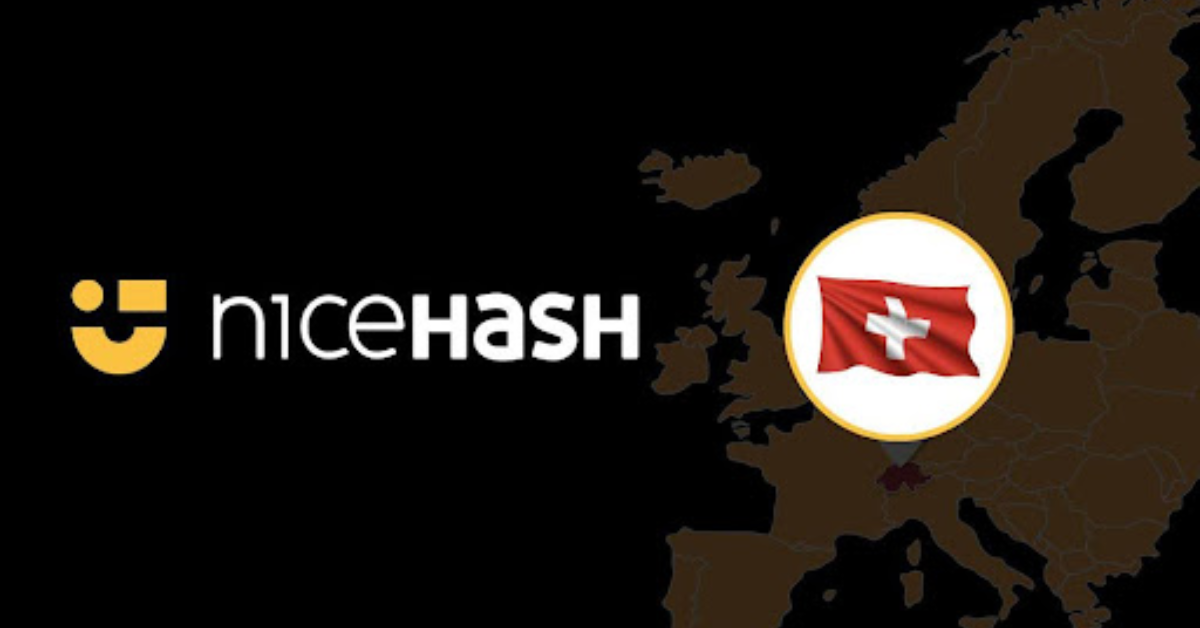As the cryptocurrency industry matures, regulatory compliance has become essential for companies aiming to thrive in the ever-evolving landscape. Leading cryptocurrency mining platform NiceHash has demonstrated its willingness to lead by example by relocating operations from the British Virgin Islands to Zug, Switzerland.
This strategic move to Europe’s Crypto Valley will support NiceHash’s commitment to adhere to global standards, particularly as European regulations tighten. The transition began in November and is expected to conclude by mid-December, once the minutiae of shifting HQ has been finalized. In doing so, NiceHash joins a handful of other crypto companies that have pledged to set up shop in the EU, including several tier-1 exchanges.
New Address, Same NiceHash
The decision to make the move to Swiss territory feeds into NiceHash’s goal of positioning itself at the forefront of compliant crypto mining services. The transition not only aligns with Switzerland’s robust regulatory framework but ensures adherence to the European Union’s Markets in Crypto-Assets Regulation (MiCA) and the Travel Rule, both of which are reshaping the cryptocurrency industry.
Switzerland’s reputation as a hub for blockchain innovation and regulatory clarity makes it an ideal destination for crypto companies such as NiceHash. Zug, in particular, has become synonymous with the crypto industry, hosting a thriving ecosystem of blockchain startups, industry leaders, and regulatory bodies that foster innovation while ensuring compliance.
Crypto Companies Comply With MiCA
The European Union’s Markets in Crypto-Assets Regulation (MiCA), set to come into full effect by December 2024, represents one of the most comprehensive regulatory frameworks for cryptocurrencies. Covering crypto issuance, trading, and service provision, MiCA aims to establish a unified approach to crypto governance across EU member states, promoting transparency and investor protection.
The Travel Rule, a separate but equally impactful regulation, mandates that cryptocurrency service providers collect and share customer information during transactions above a certain threshold. Its goal is to combat money laundering and illicit financial activities, aligning crypto operations with global standards applied in traditional finance.
While there have been some concerns raised in regards to the EU’s wide-ranging new regulatory framework, particularly in the context of stablecoin issuance, industry players have widely accepted the regulations as the price of progress. They’re designed to weed out less scrupulous players, driving crypto users into the arms of legitimate companies committed to upholding rigorous security and compliance standards.
Simplifying Cryptocurrency Mining
Founded in 2014, NiceHash has become synonymous with cryptocurrency mining, offering a marketplace that connects sellers of hashing power with buyers looking to mine cryptocurrencies. Unlike traditional mining operations that require significant upfront investment in hardware and energy costs, NiceHash democratizes access by allowing individuals and businesses to lease computational power on demand.
Sellers can monetize idle GPU or CPU resources, while buyers can choose from a variety of mining algorithms, optimizing profitability and efficiency. This two-way marketplace has made NiceHash a popular choice for seasoned miners with hashrate to spare and newcomers exploring the space. While already compliant with EU regulations, the move to Zug demonstrates its determination to maintain its status as Europe’s favorite crypto mining platform.










